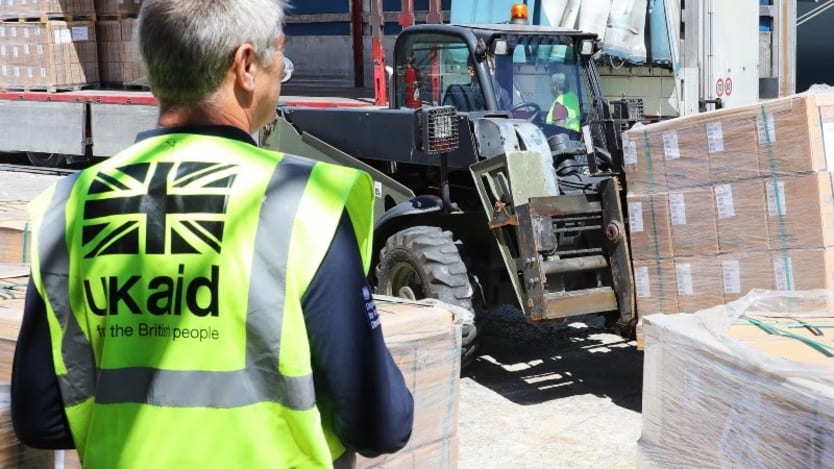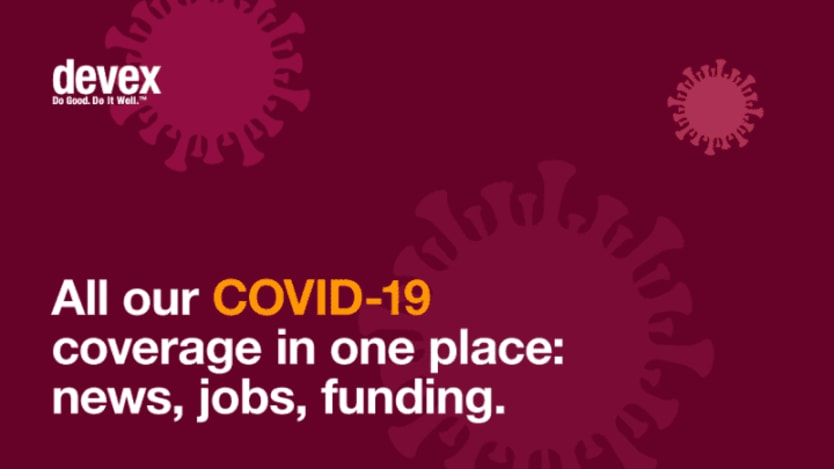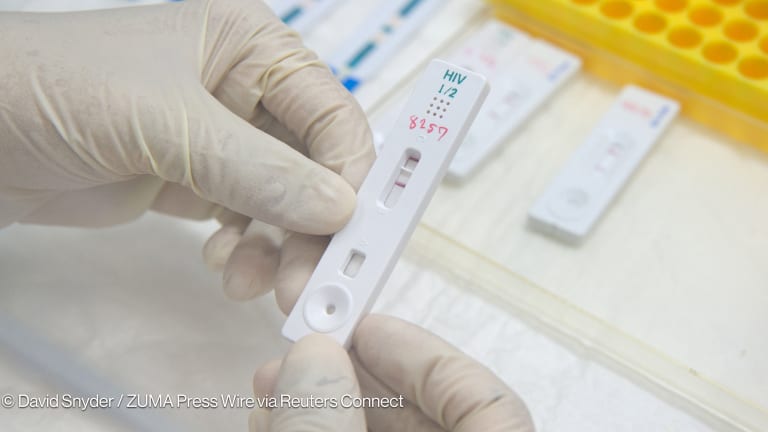
LONDON — The U.K.’s Department for International Development released details of coronavirus funding for NGOs on Friday, but the support falls short of what has been requested.
The groups will receive a total of almost £45 million ($55 million) from the U.K. government to help respond to the pandemic internationally — including £18 million through the Rapid Response Facility, or RRF, and more than £24 million through a hygiene program jointly funded with soap manufacturer Unilever.
We’ve lifted our paywall on all COVID-19 articles. Looking for more in-depth global development coverage? Please consider supporting our journalism with a Pro subscription.
DFID said more funding will be made available for small- and medium-sized NGOs through UK Aid Direct — although this is not expected to be disbursed until at least the end of the year — and the Small Charities Challenge Fund.
This comes after NGOs said they were “deeply concerned” about the lack of funding allocated for them to help with the response and the speed of its delivery.
Who won funding through the RRF?
DFID uses the RRF to channel funds quickly during emergencies through a collection of 36 preapproved organizations that includes some of the U.K.’s biggest humanitarian groups.
There was disquiet among NGOs when the relatively small RRF funding pot for the coronavirus response was announced on April 12.
Organizations working on bids had been expecting a larger sum, and the £18 million allocated is widely viewed as insufficient for the action needed. Bond, the network for U.K. aid NGOs, is calling for the amount to be increased to £100 million.
Devex understands that only seven of 92 bids submitted through the RRF were ultimately accepted by DFID, which one development professional described as “a wasted opportunity for DFID and a considerable waste of NGO resources in the midst of a crisis.” DFID has not confirmed the figures.
CARE received £3 million, which it will use to “work with communities in conflict-affected regions of Niger, Mali, and Chad to prevent the spread of coronavirus and deal with the knock-on impacts of lockdown, particularly on women and girls,” according to Helen Thompson, head of the humanitarian program at CARE International U.K.
Thompson continued: “From responses such as the West Africa and DRC Ebola crises, we know that strong community engagement and risk messaging is essential to stop the spread of disease. DFID’s support will help us rapidly scale up work at community level with trusted messengers.”
The Norwegian Refugee Council won £3 million for work in Somalia, in partnership with other NGOs. The funding will support front-line health care workers, the continuity of health services, cash transfers for vulnerable families, and water, sanitation, and hygiene projects, according to Suze van Meegen, NRC’s advocacy manager for Somalia.
Action Against Hunger also won £3 million for work with other NGOs in Yemen on WASH, supporting health systems, and preventing malnutrition, among other objectives, according to Executive Director Jean-Michel Grand.
The other organizations awarded funding under the RRF are Christian Aid, Humanity & Inclusion, and GOAL.
What other DFID funding is there for NGOs?
Aside from the RRF funding, the H2H Network, which provides products and services to NGOs, received £2 million “for organisations which are improving the global humanitarian response,” according to a DFID statement.
About one-quarter of the £100 million pot funded by DFID and Unilever has also been allocated to NGOs, according to Friday’s announcement, with more than £24 million going to groups including ActionAid, WaterAid, the International Rescue Committee, World Vision, Amref Health Africa, and Water & Sanitation for the Urban Poor.
“These organizations are often best placed to help those most at-risk and are crucial to slowing the pandemic’s spread in the developing world.”
— Anne-Marie Trevelyan, secretary of state for international development, DFIDDFID and Unilever are each contributing £50 million to the campaign, which was announced on March 26 and aims to reach 1 billion people in Africa and Asia. The partners say that communications and behavior-change messaging will encourage people to regularly wash their hands with soap and to disinfect surfaces.
Starting May 18, charities with an annual income of under £10 million can also apply for grants tied to coronavirus-related work as part of the next round of the UK Aid Direct program, with up to £30 million in grants available overall. The UK Aid Direct website says this round will support “small to medium-sized organisations which can demonstrate how they will help to achieve the Global Goals ... whilst considering the longer term impact of COVID-19.” However, awardees will not be notified until December.
Meanwhile, the Small Charities Challenge Fund will provide grants of up to £50,000 to small charities working on COVID-19.
DFID sets out measures to support UK NGOs
The news is some relief for struggling NGOs — but they say more support is needed.
DFID has also contributed £145 million to multilaterals as part of the global COVID-19 response, but it is not clear how much of this will be passed to NGOs, and even where it is, there are concerns about how quickly the money could be disbursed.
The economic fallout of the pandemic has brought significant financial challenges for U.K. NGOs, including fears of bankruptcy. Earlier this month, DFID relaxed financing conditions for NGOs under some circumstances and on a case-by-case basis.
NGOs also say their critical role in providing a rapid response to the pandemic has not been recognized or met with appropriate financing.
Responding to the RRF funding allocations, Stephanie Draper, CEO of Bond, said in a statement that “many other NGOs stand ready to help millions of vulnerable people with worked up plans from this RRF. We hope DFID will urgently increase the amount allocated to the Rapid Response Facility to £100m, and encourage them to continue to utilise other funding mechanisms so we do not lose out on the critical expertise and access smaller, grassroots NGOs have. Expertise, speed and access to vulnerable communities are critical if we are to curb the number of lives lost to COVID-19.”
Anne-Marie Trevelyan, DFID’s secretary of state, said she was “very grateful to charities and NGOs for their vital work to keep people safe.”
“These organizations are often best placed to help those most at-risk and are crucial to slowing the pandemic’s spread in the developing world. This, in turn, helps reduce the risk of future waves of infection globally, which could otherwise come to the U.K.,” she added.
We’ve removed our paywall for this article — previously for Pro subscribers only — to provide access to accurate information and resources during the COVID-19 outbreak. Please consider supporting our journalism with a Pro subscription.
Visit our dedicated COVID-19 page for news, job opportunities, and funding insights.









